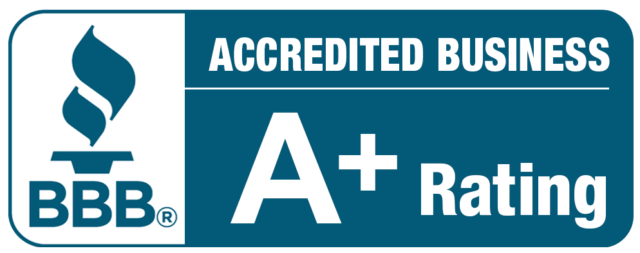Can I reduce patient health risks during holidays? Is there a way to keep them strong, hale, and hearty till they get back to their normal lives after all the festivities?
Some home care personnel and caregivers always get tensed during holidays, not about themselves but about their clients or patients who may be off their hands for a while. This break often exposes them to a lot of health risks that come with “enjoying the festivities“.
Holidays are fun, exciting, and interesting, however, it is one of those times when a patient is at risk healthwise. From overindulging in unhealthy foods to neglecting self-care routines, the holidays can take a toll on one’s well-being.
However, by implementing a few simple strategies, patients can minimize potential health risks and enjoy the festive season to the fullest.
In this article, we will explore 15 tips to help patients reduce health risks during the holidays.
15 Tips to Reduce Patient Health Risks During the Holidays
Here is a step-by-step guide that will help caregivers and home care personnel help their clients reduce the risks of getting down healthwise during the holidays.
Some of these strategies you may not be able to enforce because at this time you may be far away from them leaving them alone or in the hands of families or guardians.
The best thing to do here is to encourage them to take these steps for their health sake. You can also inform their loved ones to ensure these strategies as it applies to your client are implemented to maintain their health.
Here are tips to reduce patient health risks during the holiday:
#1. Maintain a Balanced Diet
During the holidays, tempting treats and decadent feasts are plentiful. However, it’s important to maintain a balanced diet by incorporating fruits, vegetables, lean proteins, and whole grains or stick to their diet plans.
Encourage them to choose healthier options at gatherings and limit the intake of sugary and fatty foods. Practicing portion control can also prevent overeating and minimize the risk of weight gain, indigestion, and other related health issues.
#2. Stay Hydrated
Amidst the festivities, it’s easy to forget to drink enough water. Encourage them to stay hydrated by consuming an adequate amount of water throughout the day.
Advice that they limit the intake of sugary beverages and alcohol, as they can lead to dehydration. Proper hydration supports digestion, promotes optimal organ function, and helps maintain overall well-being.
#3. Prioritize Regular Exercise
Physical activity often takes a backseat during the holidays. However, it’s crucial to prioritize regular exercise to combat sedentary behavior and maintain good health.
Engage in activities such as brisk walking, dancing, or playing outdoor games with family and friends. Regular exercise boosts energy levels, reduces stress, and improves cardiovascular health.
You can check out some exercises fit for them in our guide Health and Fitness: The Key to Thriving in Golden Years.
#4. Get Sufficient Rest
Adequate rest is vital for maintaining optimal health. Amidst the holiday hustle and bustle, make sure to get enough sleep each night. Aim for 7-8 hours of uninterrupted sleep to support immune function, enhance mood, and improve cognitive performance.
Establishing a consistent sleep schedule and creating a restful environment can help achieve better sleep quality. You can encourage them to read this piece on the Benefits of Napping.
#5. Manage Stress Effectively
The holiday season can be stressful, with numerous commitments and expectations. Prioritizing self-care and setting realistic expectations will help to maintain emotional well-being.
To reduce the negative impact of stress on health, practice stress management techniques such as deep breathing exercises, meditation, and engaging in hobbies, or Cognitive Activities.
#6. Wash Hands Regularly
Diseases spread easily during gatherings. As such encourage them to wash their hands regularly to minimize the risk of spreading germs.
Hand hygiene plays a vital role in preventing the transmission of illnesses such as colds, flu, and gastrointestinal infections. Use soap and water, or an alcohol-based hand sanitizer when soap is not available.
#7. Stay Up to Date with Vaccinations
Before the holiday season begins, ensure that your patient is up to date with vaccinations. Immunizations, such as the flu shot, can protect against seasonal illnesses and reduce the risk of complications.
Ensure to consult with their healthcare provider to determine the appropriate vaccinations for them.
#8. Travel Smart
If your client is traveling outside of their home, it is important to encourage them to travel smartly. This includes taking the necessary precautions to ensure a safe and healthy journey.
Remind them to pack essential medications, maintain good hygiene while traveling, and follow guidelines provided by health authorities.
If traveling by air, they should stay hydrated, move around periodically, and wear compression socks to prevent blood clots during long flights.
#9. Avoid Drunk Driving
Driving drunk is accidental and detrimental to anyone. Festivities come with a lot of drinking and as such one might find themselves drunk and need to get home.
It is crucial to remind your patient of how that is detrimental to their health. Encourage them not to get drunk and if they do, they shouldn’t drunk drive.
#10. Maintain Medication Routines
One of the tips to reduce the patient’s health risks is to encourage and remind them to maintain their medication routine as consistency is vital when it comes to medication.
Encourage them to stick to their prescribed medication routines even during the holidays. Plan ahead to ensure they have an adequate supply of medications to last through the festivities. You can suggest that they set reminders to avoid missing any doses.
#11. Practice Mindful Socializing
Social gatherings are an integral part of the holiday season. However, it’s important to be mindful of potential risks especially if the patient’s immune system is not as strong.
Encourage them to opt for outdoor activities or well-ventilated spaces, and practice physical distancing. They should wear masks when necessary and consider virtual celebrations if they are at higher risk.
When a patient is not in your care, there is not much you can do. However effective communication with the patient goes a long way to keep them healthy and reduce health risks that come during holidays.
Ensure to let them know what their role is. Also, educate their family or temporary caregiver of any information that will help them help their loved ones keep healthy during the festivities.
We hope you found this guide helpful.
If you are in Indiana and looking for how to access quality care services and personalized client care plans, visit Good Hands home care agency, where care is offered with professionalism and efficiency.





